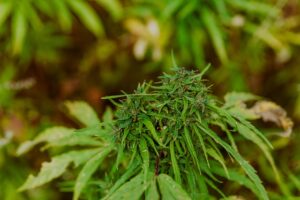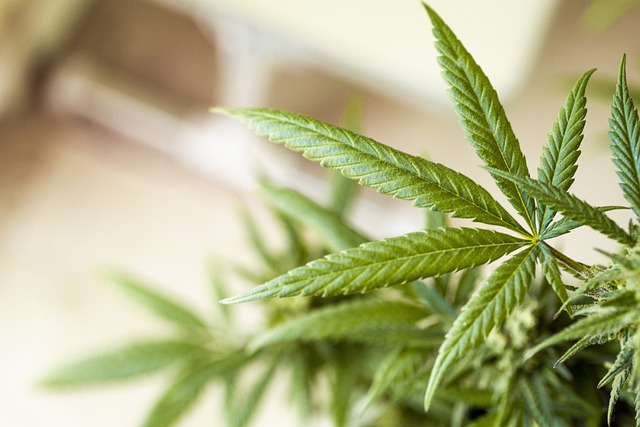
Δ9-tetrahydrocannabinolic acid (THCA), a non-psychoactive precursor to THC found in raw cannabis, is gaining attention for its potential health benefits, which include anti-inflammatory, neuroprotective, and anti-nausea effects. The THCA flower, rich in this compound, offers these therapeutic properties without the psychoactive high associated with THC. The entourage effect of cannabis enhances these benefits through synergy with other plant compounds like terpenes. Research suggests that THCA can be consumed in its natural acid form through raw cannabis preparations like juices and smoothies, or it can be activated into THC for different effects through decarboxylation. The therapeutic potential of THCA flowers is being explored for their role in holistic health practices, with ongoing scientific studies highlighting their promise in various health domains. Cultivation practices are key to maintaining the efficacy and potency of THCA flower effects and benefits, ensuring stable growing conditions, proper nutrient balance, and careful handling post-harvest to preserve its integrity. It's important for users to navigate the legal status of THCA flower consumption, which varies by jurisdiction, to ensure compliance with local laws. As understanding of THCA flower effects and benefits expands, it emerges as an appealing alternative for those seeking cannabis's therapeutic effects without psychoactive side effects. Users are encouraged to consult local regulations and healthcare professionals when incorporating THCA flowers into their wellness routines.
Discover the transformative potential of THCA flowers, a non-psychoactive cannabinoid that’s gaining attention for its myriad health and wellness effects. In this comprehensive guide, we delve into the unique properties of raw cannabis, or THCA flower, and its profound impact on wellbeing. From unlocking its therapeutic benefits to understanding how to cultivate it, store it, and consume it for peak effectiveness, this article covers everything you need to know about THCA flowers. Explore their effects, the legal considerations, and the entourage effect when used in conjunction with other cannabinoids. Whether you’re a curious newcomer or an experienced enthusiast, this article provides valuable insights into the world of THCA flower effects and benefits, setting the stage for a deeper appreciation of its role in modern herbalism. Join us as we explore the science, the strains, and the secrets behind maximizing the advantages of THCA flowers for your health and well-being.
- Unlocking THCA Flower's Potential: An Overview
- The Science Behind THCA: What Makes It Special?
- THCA Flower Effects: A Closer Look at Its Impact
- Therapeutic Benefits of THCA Flower for Wellness
- Cultivation Secrets: Growing Your Own THCA-Rich Flowers
- Understanding the Legal Landscape of THCA Flowers
Unlocking THCA Flower's Potential: An Overview
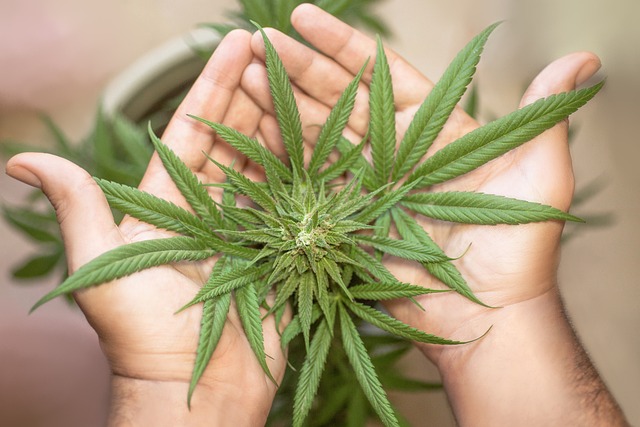
Exploring the potential of THCA (Tetrahydrocannabinolic Acid) flowers, a non-psychoactive precursor to THC (Tetrahydrocannabinol), offers a window into a range of therapeutic and beneficial effects. These buds, rich in cannabinoid acids, have garnered attention for their versatile applications and health-promoting properties. When properly decarboxylated—a process that converts THCA into THC by applying heat—the flower’s effects become pronounced, offering a spectrum of wellness benefits. Users often report a sense of relaxation and pain relief, without the intense psychoactive experience associated with THC. The entourage effect, where THCA interacts synergistically with other cannabinoids and terpenes in the plant, is thought to enhance these effects, making THCA flower a subject of interest for those seeking natural alternatives for various ailments. As research continues to unfold, the benefits of THCA flowers are becoming increasingly evident, providing a promising avenue for exploration in the realm of holistic health and well-being.
The Science Behind THCA: What Makes It Special?
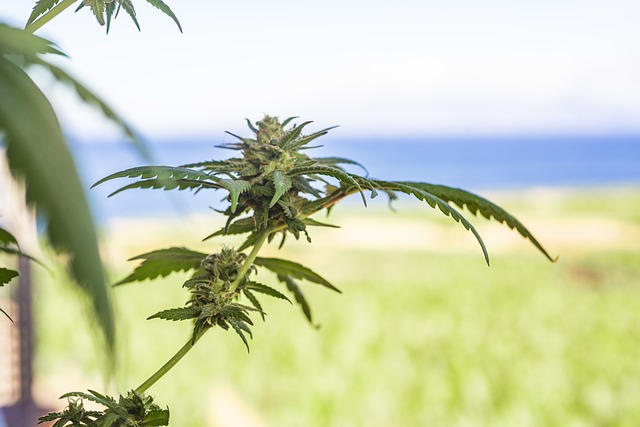
Delta-9-tetrahydrocannabinolic acid, commonly known as THCA, is a natural compound found in cannabis plants. Unlike its decarboxylated form, THC, THCA exists naturally in raw cannabis flowers and possesses a distinct set of properties that differentiate it from other cannabinoids. The unique effects and benefits of THCA stem from its interaction with the body’s endocannabinoid system, a complex network that regulates various physiological processes. Preliminary research suggests that THCA may offer potential therapeutic applications, including anti-inflammatory, neuroprotective, and anti-nausea effects without the psychoactive impact associated with THC. This makes THCA an object of interest for those seeking the medicinal benefits of cannabinoids without the ‘high’ typically linked to cannabis consumption. The flower tips of cannabis plants are particularly rich in THCA, offering a concentrated source of this non-psychoactive cannabinoid. Consumers interested in the potential health benefits of THCA often turn to raw cannabis preparations, such as juices or smoothies, to harness its effects and benefits directly from the plant. As scientific research continues to evolve, the understanding of THCA’s role and its influence on human health is becoming clearer, potentially paving the way for new cannabinoid-based treatments in various therapeutic areas.
THCA Flower Effects: A Closer Look at Its Impact
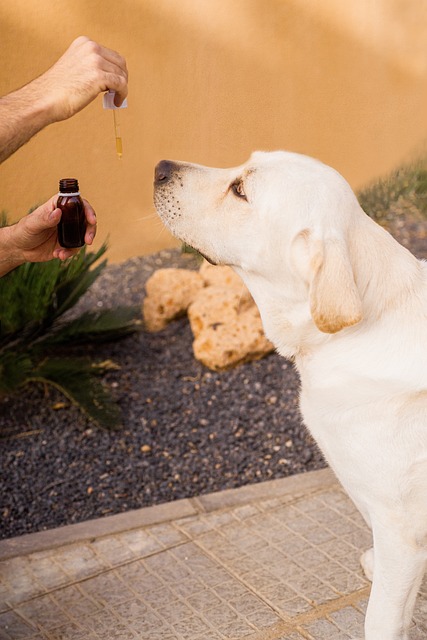
THCA flower effects are a subject of growing interest within the cannabinoid community due to its potential therapeutic properties. Tetrahydrocannabinolic acid (THCA) is the raw, non-psychoactive precursor to delta-9-tetrahydrocannabinol (THC), the most well-known psychoactive component of cannabis. Unlike THC, THCA is found in fresh cannabis flowers and possesses a unique set of effects and benefits that are distinct from its psychoactive counterpart. Preliminary research suggests that THCA may offer anti-inflammatory, anti-nausea, anti-emetic, and neuroprotective qualities, making it an object of scientific curiosity for both researchers and users looking for alternative wellness solutions. Users report a clear-headed high when consuming THCA-rich products, which may be beneficial for those seeking the potential benefits of cannabis without the psychoactive effects associated with THC. As such, the exploration into the therapeutic effects of THCA flower is an evolving field, with ongoing studies aiming to uncover its full spectrum of impacts on human health and well-being.
Therapeutic Benefits of THCA Flower for Wellness

THCA, or tetrahydrocannabinolic acid, is a natural compound found in the cannabis plant that has garnered attention for its potential therapeutic benefits. As a precursor to THC, the psychoactive component of cannabis, THCA exists in raw cannabis plants and flowers and offers distinct effects and benefits. Consumers interested in the wellness properties of cannabis often explore THCA flower as an alternative to other cannabinoid-rich products.
THCA flower effects are multifaceted, offering a range of potential wellness advantages. For instance, it is believed to have anti-inflammatory and neuroprotective qualities, which may be beneficial for individuals experiencing pain or neurological issues. The compound may also support the immune system and offer antioxidant benefits, contributing to overall health maintenance. Furthermore, early research suggests that THCA interacts with the body’s endocannabinoid system, potentially aiding in stress reduction and promoting a sense of calm without the psychoactive effects associated with THC. This makes THCA flower an attractive option for those seeking the therapeutic benefits of cannabis without the high. As such, it is increasingly being incorporated into wellness routines by individuals looking to harness its beneficial properties for improved health and well-being.
Cultivation Secrets: Growing Your Own THCA-Rich Flowers
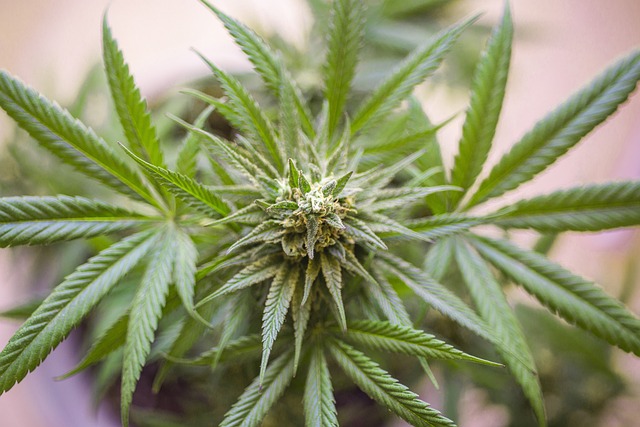
When cultivating THCA-rich flowers, understanding the optimal growing conditions is paramount for a successful harvest that captures the full spectrum of thca flower effects and benefits. These cannabinoid-rich plants thrive in environments with stable temperatures and humidity levels, particularly during the flowering stage. Ensuring ample light, preferably a combination of direct sunlight and artificial lighting on a 12-hour light/dark cycle, promotes potent bud development. Additionally, nutrient management is crucial; providing the correct balance of nitrogen, phosphorus, and potassium throughout the growth phases will enhance the plants’ health and the concentration of THCA. Regular pruning and training can also improve airflow, increase light exposure, and prevent molds or pests—factors that may compromise the quality and efficacy of the thca flower effects and benefits.
As you approach the harvest, monitoring the trichome clarity is essential. Mature, cloudy trichomes indicate peak THCA concentration, which is associated with a host of potential therapeutic effects and benefits, including anti-inflammatory properties and stress relief. Harvesting at this stage ensures that the flowers maintain their potency and the full spectrum of benefits. Post-harvest care, such as proper drying and curing in controlled environments, is equally important to preserve the integrity of THCA and prevent degradation into other cannabinoids like THC or CBN. By adhering to these cultivation secrets, you can successfully grow your own THCA-rich flowers, rich with effects and benefits that users seek for their wellness routines.
Understanding the Legal Landscape of THCA Flowers
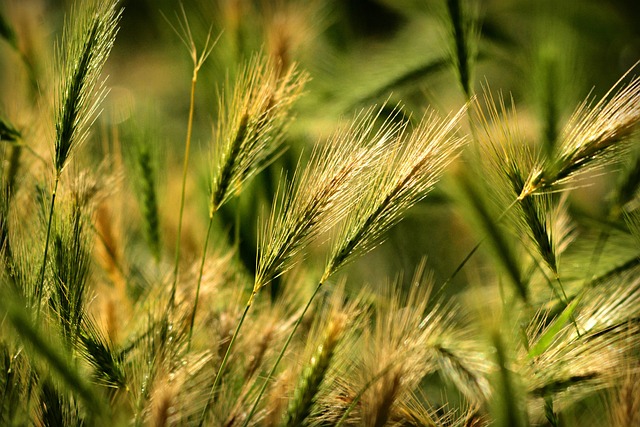
navigating the legal landscape concerning THCA flower consumption requires a keen understanding of local and federal laws. THCA, or tetrahydrocannabinolic acid, is the precursor to THC, the psychoactive compound found in cannabis. As such, THCA flowers possess their unique set of effects and benefits, which are gaining attention within both scientific research and consumer markets. Legality varies by jurisdiction, with some regions permitting the sale and use of THCA flowers for recreational purposes, while others allow them for medicinal use only. It is crucial for consumers to be well-informed about their local laws, as possession and use of these products can lead to legal complications in areas where they remain prohibited. The effects and benefits of THCA flowers are subject to ongoing study; however, early research suggests that they may offer therapeutic properties such as pain relief, anti-inflammatory effects, and potential benefits for neurodegenerative disorders without the intense psychoactive effects associated with THC. This distinction makes THCA flowers an area of interest for those seeking the medicinal benefits of cannabis while avoiding or minimizing mind-altering experiences. Consumers interested in the therapeutic properties of cannabis should familiarize themselves with their local regulations and consult with a healthcare professional to navigate the legal landscape responsibly and safely.
THCA flower holds a unique position in the cannabinoid spectrum, offering a blend of therapeutic properties and distinct effects that continue to intrigue researchers and wellness enthusiasts alike. From its potential health benefits to the nuances of cultivating these plants, understanding THCA flower is essential for those interested in exploring its effects and benefits. As outlined in this article, from unlocking its potential to navigating the legal landscape, the importance of knowledge in this field cannot be overstated. Growers and consumers alike are encouraged to approach THCA flower with informed curiosity, ensuring a safe and beneficial experience. With continued research and responsible usage, the full spectrum of benefits that THCA flower can offer is poised to be fully realized and integrated into wellness routines.
